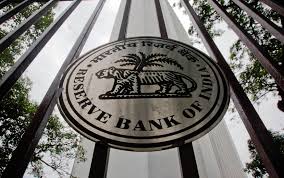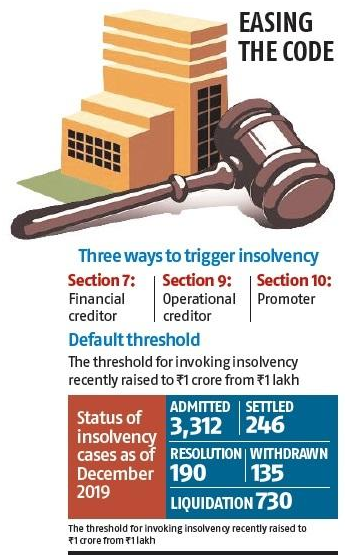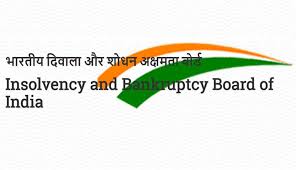 In a view of the pandemic situation due to COVID-19 outbreak and several representations made, by the stake holders, Ministry of Corporate Affairs (MCA) has came out with a new scheme called “Scheme for relaxation of time for filing forms related to creation or modification of charges under the Companies Act, 2013” for the purpose of condoning the delay in filing certain forms related to creation/ modification of charges.
In a view of the pandemic situation due to COVID-19 outbreak and several representations made, by the stake holders, Ministry of Corporate Affairs (MCA) has came out with a new scheme called “Scheme for relaxation of time for filing forms related to creation or modification of charges under the Companies Act, 2013” for the purpose of condoning the delay in filing certain forms related to creation/ modification of charges.
=========================================================
F.No. 02/05/2020 CL-V
Government of India
Ministry of Corporate Affairs
5th Floor, ‘A’ Wing, Shastri Bhawan,
Dr. Rajendra Prasad Road, New Delhi-1.
General Circular No. 23/2020
Dated: 17th June, 2020
To
All Regional Directors,
All Registrar of Companies,
All Stakeholders.
Subject: Scheme for relaxation of time for filing forms related to creation or modification of charges under the Companies Act, 2013.
Sir/Madam,
The companies are required to file forms related to creation or modification of charges within the timelines provided in section 77 of the Companies Act, 2013 (Act), i.e. a total of 120 days of the creation or modification of charge. In case, the company fails to register the charge within the period of thirty days referred to in sub-section (1) of section 77, the charge holder may file the form related to creation or modification of charges under section 78 of the Act, within the overall timelines for filing of such form under section 77.
- On account of the pandemic caused by the COVID-19, representations have been received in this Ministry, requesting that the timelines related to filing of certain charge related forms may be suitably relaxed so as to provide a window of compliance for the registration of charges. Under the Companies Fresh Start Scheme, 2020 as laid out in the General Circular No. 12/2020, dated 30.03.2020, the benefit of waiver of additional fees was not extended to the charge related documents. Therefore, it has been suggested that some dispensation may be provided for filing of charge related documents as well.
- In view of the above, the Central Government in exercise of its powers under section 460 read with section 403 of the Act and the Companies (Registration Offices and Fees) Rules, 2014 (Fees Rules) has decided to introduce a Scheme, namely “Scheme for relaxation of time for filing forms related to creation or modification of charges under the Companies Act, 2013” for the purpose of condoning the delay in filing certain forms related to creation/modification of charges.
- The details of the scheme are as under: –
(i) The scheme shall come into effect from the date of issue of this Circular.
(ii) Applicability: The scheme shall be applicable in respect of filing of Form No. CHG-1 and Form No. CHG-9 (both referred as ‘form’ or ‘forms’) by a company or a charge holder, where the date of creation/modification of charge:
(a) is before 01.03.2020, but the timeline for filing such form had not expired under section 77 of the Act as on 01.03.2020, or
(b) falls on any date between 01.03.2020 to 30.09.2020 (both dates inclusive).
(iii) Relaxation of time:
(a) In case a form is filed in respect of a situation covered under sub-para (ii)(a) above, the period beginning from 01.03.2020 and ending on 30.09.2020 shall not be reckoned for the purpose of counting the number of days under section 77 or section 78 of the Act. In case, the form is not filed within such period, the first day after 29.02.2020 shall be reckoned as 01.10.2020 for the purpose of counting the number of days within which the form is required to be filed under section 77 or section 78 of the Act.
(b) In case a form is filed in respect of a situation covered under sub-para (ii)(b) above, the period beginning from the date of creation/modification of charge to 30.09.2020 shall not be reckoned for the purpose of counting of days under section 77 or section 78 of the Act. In case, the form is not filed within such period, the first day after the date of creation/modification of charge shall be reckoned as 01.10.2020 for the purpose of counting the number of days within which the form is required to be filed under section 77 or section 78 of the Act.
(iv) Applicable Fees:
(a) In regard to sub-para (iii)(a) above, if the form is filed on or before 30.09.2020, the fees payable as on 29.02.2020 under the Fees Rules for the said form shall be charged. If the form is filed thereafter, the applicable fees shall be charged under the Fees Rules after adding the number of days beginning from 01.10.2020 and ending on the date of filing plus the time period lapsed from the date of the creation of charge till 29.02.2020.
(b) In regard to sub-para (iii)(b) above, if the form is filed before 30.09.2020, normal fees shall be payable under the Fees Rules. If the form is filed thereafter, the first day after the date of creation/modification of charge shall be reckoned as 01.10.2020 and the number of days till the date of filing of the form shall be counted accordingly for the purposes of payment of fees under the Fees Rules.
(v) The Scheme shall not apply, in case:
(a) The forms i.e.CHG-1 and CHG-9 had already been filed before the date of issue of this Circular.
(b) The timeline for filing the form has already expired under section 77 or section 78 of the Act prior to 01.03.2020.
(c) The timeline for filing the form expires at a future date, despite exclusion of the time provided in sub-para (iii) above.
(d) Filing of Form CHG-4 for satisfaction of charges.
- This issues with the approval of the Competent Authority.
Yours faithfully,
(K S Narayanan)
Assistant Director (policy)







